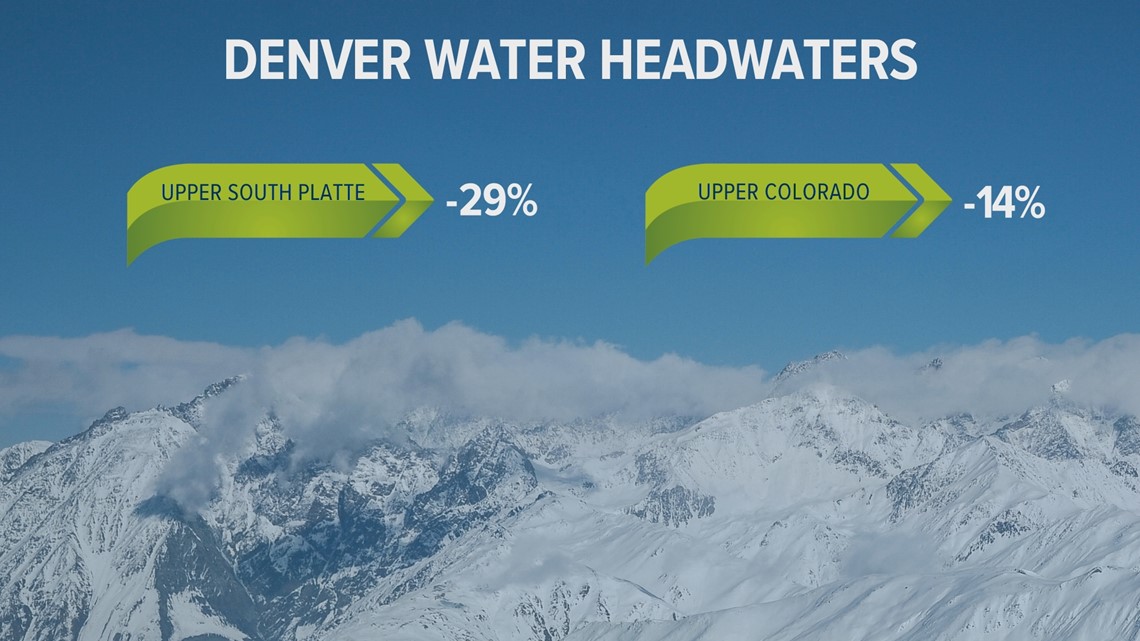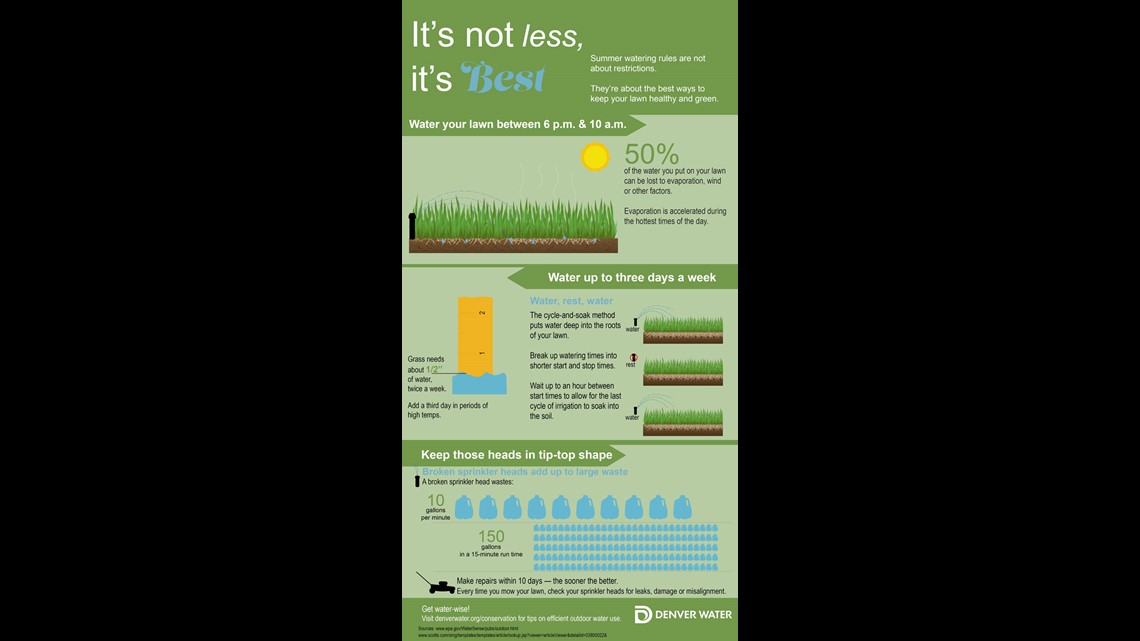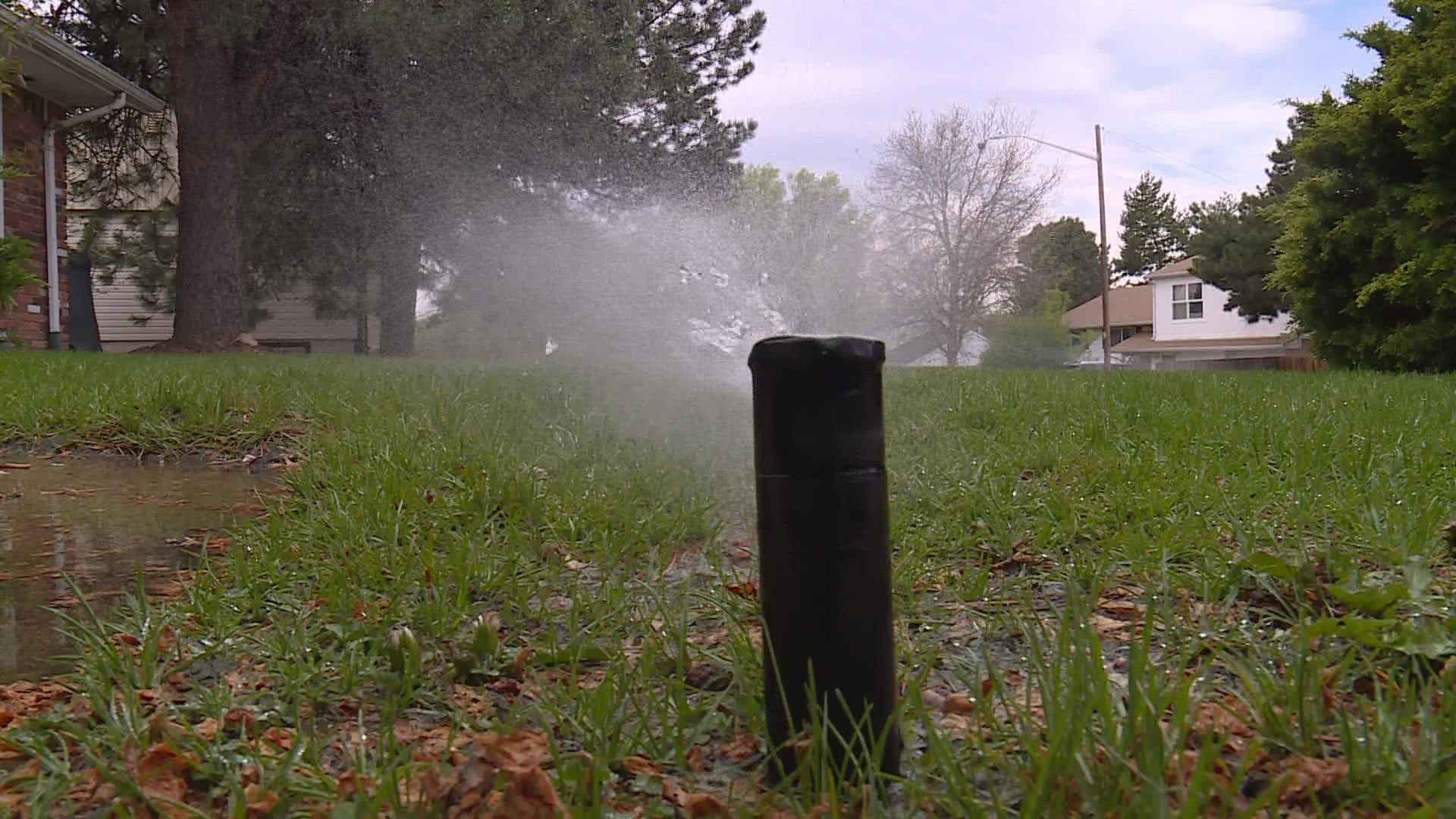DENVER — During the drought of 2002, which really set the bar for just how low the state water supply can get, Denver Water introduced their first ever set of water restrictions. They required that their customers only water three times a week or less, and only water during the cooler hours between 6 p.m. and 10 a.m.
After that, their climate forecasters realized that similar drought levels in the future were going to be a rule and not an exception.
"That really inspired Denver Water and later many other utilities to lock in those restrictions from 2002, and make them annual summer rules," said Todd Hartman, a spokesperson for Denver Water.
He said those Summer Watering Rules now apply every year between May 1 and October 1.
91% of Colorado is currently in drought conditions, and the Colorado River system is in dire shape, especially at Lake Powell, where storage elevation is at its lowest elevation since the 1960s.
But most of the water used by Denver Water customers comes from snowpack collected in a couple of basins that didn't have as bad of a winter. The Upper South Platte headwaters peaked at 29% below average, and the Upper Colorado headwaters peaked at 14% below average.


Overall, the two areas reached their peak levels on April 26 which is about average, but Denver Water did say the snow telemetry sites above Lake Dillon may not have peaked yet. Even with a very warm and sunny Saturday, there is a chance they will peak on Sunday or Monday if this next storm system can bring in 6 inches of snow or more.
Either way, those sites above Lake Dillon will still peak at below average levels.
Hartman said that's not a great season, but its not awful either. He said they got just enough snow to avoid implementing additional restrictions.
“That’s always on a continuum," he said. "Our water planning group is always watching the situation, so things could change, but right now we feel like we could get through the irrigation season with our standard rules in place.”
Denver Water estimates that half of the water used by their 1.5 million customers gets sprayed onto the yards. The average lawn only requires a half inch of water twice per week.


So that means when the Denver area gets an inch of rain, like it did in the first four days of May, sprinklers systems should be turned off for seven days because an inch of rain equals two half-inch waterings.
“The less water we use in this part of the season, the more water that will be available later on in the summer when it really will be hot and people will want to water in some cases three days a week,” said Hartman. "And half the water we use comes from the Western Slope, so water conservation in Denver has a huge impact over there."
Many other cities and utilities in Colorado also have summer watering rules in place, but so far there are no reports of any additional restrictions beyond those standard rules.
SUGGESTED VIDEOS: Colorado Climate

